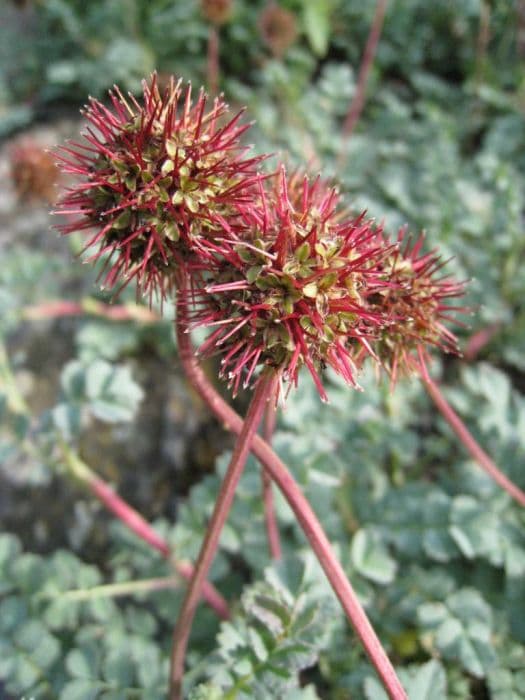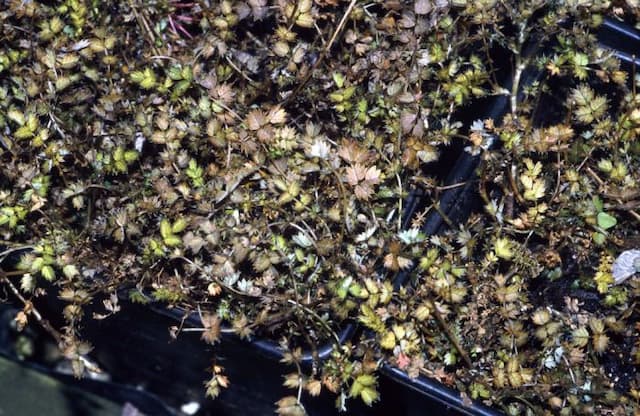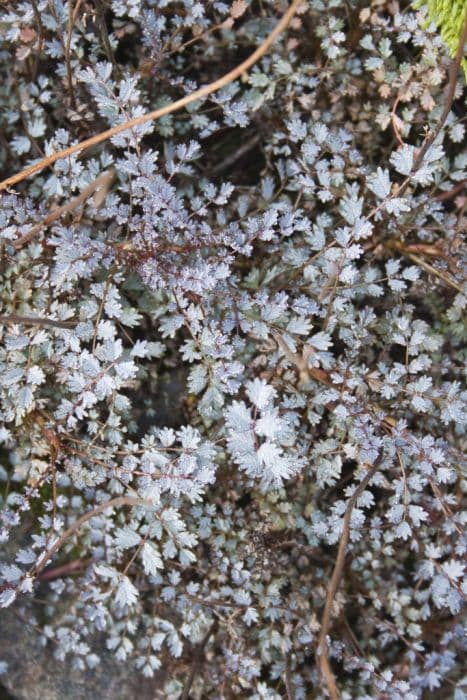Matangi Rose Rosa Matangi = 'Macman' (F)
![rose [Matangi]](/_next/image?url=https%3A%2F%2Fplants-admin.emdemapps.com%2Fimages%2Fplants%2F%2Fimages%2F604b5ab89c373.png&w=3840&q=75)
ABOUT
Rosa Matangi, commonly known as the Matangi rose, is characterized by its striking blossoms that are often a focal point due to their unique coloring and form. The flowers have a rich blend of colors, including pink, peach, and yellow hues, which can vary in intensity and create a gradient effect across the petals. Each bloom of the Matangi rose typically features a large, double-flower structure, which means the petals are densely packed and arranged in multiple layers, giving the flower a very full and lush appearance. The petals themselves are soft and velvety to the touch, contributing to the luxurious feel of the rose. As the flowers mature, they may open up further to reveal a slightly lighter shade at the base, accentuating the depth and complexity of their coloring. The overall look of these roses is one of abundance and vibrancy, with the petals sometimes showcasing a subtle wave or curl at their edges, adding to the sense of movement and grace within the plant's structure. The foliage of the Matangi rose complements the flowers well, generally consisting of glossy, dark green leaves that have a leathery texture and a slightly serrated edge. This backdrop of green serves to highlight the colorful roses, making their shades pop even more strikingly. The leaves are attached to the stems in an alternating pattern, which adds to the plant's overall texture and visual interest. The stems themselves are sturdy and may have thorns, which is typical of many rose varieties, offering a protective element to the plant. In summary, the Matangi rose boasts a captivating and elegant display of richly colored, multi-layered flowers that are enhanced by the lush green foliage, creating a stunning ornamental addition to any garden setting.
About this plant
 Names
NamesSynonyms
Matangi Rose.
Common names
Rosa Matangi = 'Macman' (F).
 Toxicity
ToxicityTo humans
The plant commonly known as 'Matangi Rose' is not considered toxic to humans. It doesn't contain any known toxins that would cause poisoning if ingested. However, it is still not recommended to consume parts of ornamental plants as they are not intended for human consumption.
To pets
Similarly to humans, the 'Matangi Rose' is not known to be toxic to pets. Dogs, cats, and other domestic animals can typically come into contact with roses without any risk of poisoning. Nonetheless, ingesting large quantities of plant material, such as leaves or petals, may lead to gastrointestinal discomfort or upset. It's always best to prevent pets from consuming ornamental plants.
 Characteristics
CharacteristicsLife cycle
Perennials
Foliage type
Deciduous
Color of leaves
Green
Flower color
Pink
Height
4 feet (1.2 meters)
Spread
3 feet (0.9 meters)
Plant type
Shrub
Hardiness zones
Varies
Native area
Cultivar
Benefits
 General Benefits
General Benefits- Attractive Aesthetic: The Rosa 'Matangi' features beautiful flowers that can enhance the visual appeal of gardens and landscapes.
- Pollinator Support: These roses can attract bees and other pollinators, contributing to the health of local ecosystems.
- Emotional Wellbeing: The presence of these roses in a garden can offer emotional wellbeing through their beauty and fragrance.
- Privacy and Boundaries: Grown as hedges, they can provide a natural privacy screen or define property boundaries.
- Versatility: Suitable for various garden styles, from classic rose gardens to mixed borders.
- Seasonal Interest: They offer seasonal interest through their blooming cycle, adding dynamic changes to a garden's appearance.
 Medical Properties
Medical Properties- This plant is not used for medical purposes.
 Air-purifying Qualities
Air-purifying QualitiesThis plant is not specifically known for air purifying qualities.
 Other Uses
Other Uses- Culinary Garnishes: The petals of roses can be used to add a splash of color and a subtle floral flavor to salads, desserts, and gourmet dishes.
- Natural Fabric Dye: Rose petals, particularly the deeply colored ones, can be used to naturally dye fabrics to a variety of pink and reddish hues.
- Botanical Artwork: Pressed or dried rose petals and leaves can be incorporated into paper crafts or framed as botanical artwork.
- Homemade Potpourri: Dried rose petals can be mixed with spices and essential oils to create a natural potpourri for a pleasant home fragrance.
- Floral Bath Salts: Rose petals can be mixed into bath salts for a luxurious and fragrant bathing experience.
- Aromatherapy: The fragrance from roses can be used in aromatherapy practices as a natural way to enhance mood and relaxation.
- Candle Making: Dried rose petals can be embedded into candles for decorative purposes and to impart a subtle fragrance when the candle burns.
- Rose Water: Petals from roses can be distilled to make rose water, which can be used for culinary purposes or as a natural facial toner.
- Wedding Confetti: Biodegradable and more environmentally friendly than synthetic confetti, rose petals are popular for use as confetti in weddings.
- Natural Insect Repellent: In some traditions, rose petals have been used to create natural insect repellents when combined with other repelling ingredients.
Interesting Facts
 Feng Shui
Feng ShuiThe Rose is not specifically used in Feng Shui practice.
 Zodiac Sign Compitability
Zodiac Sign CompitabilityThe Rose is not used in astrology practice.
 Plant Symbolism
Plant Symbolism- Love: The rose is universally regarded as a symbol of love, with its association with Aphrodite/Venus, the goddess of love, in Greek and Roman mythology.
- Beauty: Roses have long been celebrated for their beauty and are often given as a compliment to someone's physical attractiveness or inner grace.
- Passion: The rose's vivid colors and delicate form often signify intense emotions and deep passion.
- Secrecy: Historically, the rose was a symbol of confidentiality, with the term "sub-rosa" (under the rose) denoting a demand for discretion where the rose hung overhead.
- Honor: Roses are commonly used in ceremonies that recognize valor and bravery, as they embody respect and admiration for the honoree.
- Devotion: A rose's enduring beauty even as it folds in on itself represents a steadfast and loyal commitment.
- Timelessness: Given their long-standing cultural significance and historical use, roses signify the everlasting nature of certain principles and relationships.
 Water
WaterHybrid Tea Rose 'Rosa Matangi' requires thorough watering to keep the soil moist but well-drained. During the growing season, water the plant once or twice a week, with about 1 to 1.5 gallons per plant each time, depending on weather conditions. Ensure that water is applied directly to the base of the plant to avoid wetting the foliage, which can lead to fungal diseases. In hot, dry weather, you may need to water more frequently, especially for roses in containers. Reduce watering in the fall and water sparingly in winter, just enough to prevent the soil from drying out completely.
 Light
LightHybrid Tea Rose 'Rosa Matangi' performs best in full sun. It should receive at least 6 hours of direct sunlight each day to flourish and produce abundant blooms. Plant the rose in a spot that is not shaded by trees or buildings to ensure it gets the ample sunlight it needs. Avoid locations where the rose will be in the shadow for extended periods.
 Temperature
TemperatureHybrid Tea Rose 'Rosa Matangi' prefers a temperate climate. The ideal temperature range is between 65 and 75 degrees Fahrenheit during the day. Roses can generally survive winter temperatures down to 20 degrees Fahrenheit, but proper winter protection is recommended in colder climates. The plant's growth may slow down if temperatures consistently fall outside this comfortable range.
 Pruning
PruningPruning Hybrid Tea Rose 'Rosa Matangi' is essential to maintain plant health, encourage new growth, and improve air circulation. Prune the rose bush in early spring, cutting back to 12 to 18 inches to promote vigorous growth and flowering. Remove dead, damaged, or diseased canes, and thin out the center of the bush to allow sunlight to penetrate and air to circulate. Deadheading, or removing spent flowers, should be done regularly to promote continuous blooming through the season.
 Cleaning
CleaningAs needed
 Soil
SoilThe best soil mix for a rose, commonly referred to as Rosa Matangi 'Macman', should be fertile, well-drained loam with a pH between 6.0 and 6.5. Amend the soil with compost and aged manure to improve fertility and structure. Mulching is beneficial to maintain moisture.
 Repotting
RepottingRoses, like Rosa Matangi 'Macman', do not typically require frequent repotting. They should be repotted or planted into the garden when they outgrow their current container, which may be every 2-3 years.
 Humidity & Misting
Humidity & MistingRoses, including Rosa Matangi 'Macman', prefer moderate humidity levels. They can tolerate a range from 40% to 70%, but it's best to avoid extremely high humidity which can promote fungal diseases.
 Suitable locations
Suitable locationsIndoor
Place in bright, indirect light and ensure good air circulation.
Outdoor
Plant in a sunny spot with well-draining soil and morning sun.
Hardiness zone
6-10 USDA
 Life cycle
Life cycleThe life cycle of Rosa 'Matangi' begins with germination, where the plant grows from a seed or is cultivated from a cutting or graft from a mature specimen. It progresses to the vegetative stage, where it develops roots, stems, and leaves, followed by the budding stage, where initial flower buds appear. This leads to the flowering stage, marked by the blooming of its distinctive flowers, which, for ornamental plants like roses, is a key stage for pollination, pigment display, and scent production. Following pollination, the plant enters the fruiting stage, where roses produce hips that contain the seeds for the next generation. After the reproductive cycle, the plant enters a period of dormancy, especially in colder climates, where growth slows down or stops temporarily. Finally, the rose can return to the vegetative stage in the following growing season, or if it has completed its life span, it will eventually die, leaving seeds to generate new plants.
 Propogation
PropogationPropogation time
Spring-Early Summer
The Rosa Matangi 'Macman', commonly known as a type of hybrid tea rose, is most popularly propagated through a method known as hardwood cuttings. Typically, this is done during the plant's dormant period, usually in late fall to winter. To propagate, one would select a healthy, mature stem from the current or previous year's growth, and cut a piece roughly 6 to 8 inches (15 to 20 centimeters) long. This cutting should have several sets of buds. The bottom of the cutting is then dipped in rooting hormone to encourage root development and planted in well-draining soil, with about half of its length above the ground. The soil should be kept moist but not waterlogged to foster root growth. In time, this cutting will develop its own root system and can be transplanted to a permanent location in the garden.









